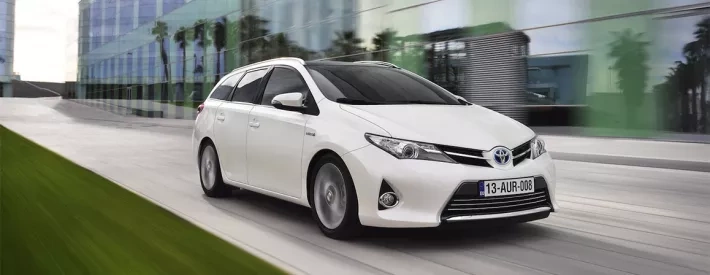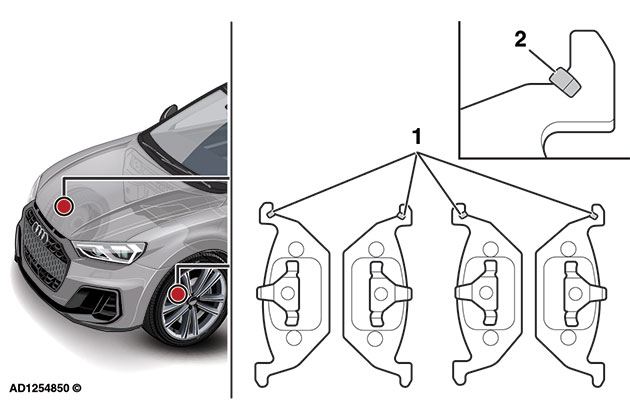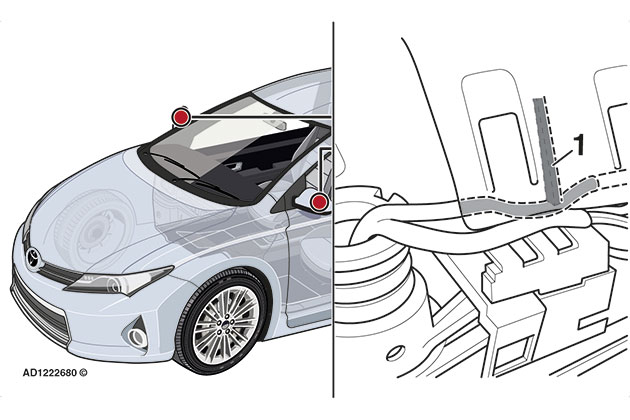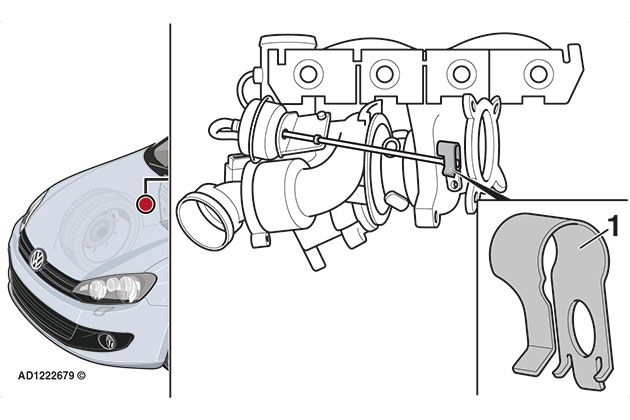Problems fixed: Audi, Toyota and Volkswagen

Leading technical supplier Autodata helps you fix three common problems found in passenger cars
The problem
We are working on a 2019 A1 citycarver where the owner is reporting a clicking, or clonking, from the front of the vehicle. We have been able to replicate the issue – oddly, it seems to happen shortly after switching into reverse gear or switching back into first. The gearbox looks good and we don’t hear the sound shifting into second or above.
The fix
Audi has documented this fault which affects both citycarver and Sportback models; at least the 1.0 petrol engine variant is known to be affected but may also affect other variants.
The issue is excessive clearance between the front brake pads and front brake caliper – the brake pads therefore have more play than is ideal and when switching from forward to reverse direction rattle in their housing.
To resolve the issue, remove the front brake pads. Clean the top edge of the front brake pads, then fix an anti-rattle clip to the top edge of each front brake pad. Refit the front brake pads and test to ensure the rattling has been eliminated.

The problem
We have a 2013 Toyota Auris in for service and the customer has complained that the retractable door mirrors are slow to fold in. We have tested the retractable door mirrors and they do seem to be slow in operation. We have lubricated the moving parts but have seen no improvement.
The fix
The fault is due to the door mirror wiring harness being incorrectly routed. Remove the door mirror cover. Ensure the wiring harness is not trapped under the door mirror housing moulding edge in the area indicated. Re-route the door mirror wiring harness as necessary. Ensure the wiring harness has adequate free play. Repeat procedure for opposite side. Re-check the operation of the retractable door mirrors.

The problem
We have a 2012 Volkswagen Golf 2.0 GTI in the workshop and the customer is complaining of a rattling noise from the engine bay when driving at 1,800-2,900 rpm. We have heard the rattling noise on road test but cannot recreate the fault in the workshop.
The fix
We are aware of several Volkswagen models with engine codes CCZA/CCZB/CCZC/CCZD suffering with the noise you have described. The rattling noise is due to excessive play between the turbocharger wastegate regulating valve control rod and the exhaust manifold flap arm. Fit a spring clip, available from the Volkswagen parts department, to the turbocharger wastegate regulating valve control rod. Carry out a road test to ensure the rattling noise has been eliminated.





